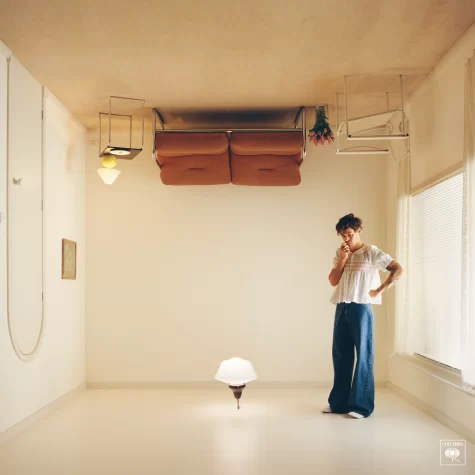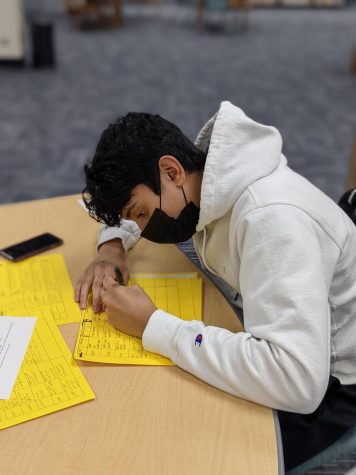Managing Anxiety with the End of the Year Approaching
May 1, 2019
Have you ever gotten home from practice, looked at your homework for the night, and felt as though you were having a panic attack? Various high school students feel this way on a daily basis. High school can be stressful, causing many late nights, rushed homework, and group projects being turned in last minute. Anxiety is a part of the lives of many teens, turning what should be the highlight of your high school years into some of the darkest times. Although it may not seem like it, anxiety is both normal and common, and can even be said to be a necessity in our lives. As the year is coming to an end and teachers are bogging students down with homework in preparation for finals, here are some other helpful ways to keep your anxiety to a minimum.
For starters, keep track of what homework is due when. Nothing causes more anxiety than walking into a class and having a teacher ask for homework that had totally slipped through your mind. Also, complete your homework earlier, rather than later. Nothing feels better than watching your friends rush to complete an assignment due the next day, while knowing that you completed it last weekend. This will keep your weekdays more open to study for those big tests, while still staying on top of all your homework. Last of all, keep in touch with your teachers. Most teachers understand how stressful the end of the year is, and will give you extensions on projects and homework if you can show how busy you’ve been and haven’t been slacking off all year.
However, when anxiety starts to consume the life of a person and interfere with everyday activities, it may be more than simply “normal anxiety”. This type of anxiety is called an anxiety disorder. There are a number of ways to differentiate anxiety from an anxiety disorder.
One of the most common anxiety disorders is known as Generalized Anxiety Disorder (GAD). Those who suffer from this disorder often have anxiety and worry on most days, usually for at least six months. This disorder often restricts people from completing their daily tasks and can cause multiple problems. Some of the symptoms of Generalized Anxiety Disorder include having no control over feelings of worry, being irritable, having difficulty sleeping, having difficulty concentrating, and constantly feeling on-edge.
Aside from Generalized Anxiety Disorder, other anxiety disorders include Panic Disorder, phobia disorders, Social Anxiety Disorder, and Separation Anxiety. Some of the symptoms from these disorders include sweating feelings of “impending doom”, and shaking. Those suffering from phobia disorders may fear certain situations or objects, and avoid them or have extreme worry when they are around these objects or situations. People suffering from Social Anxiety Disorder often feel anxious in social situations, for fear of embarrassment, and will attempt to avoid social situations. Lastly, people suffering from Separation Anxiety feel worried when they are forced to be separated from someone they are “attached” to.
There are many different ways to treat these anxiety disorders. One treatment is known as “Psychotherapy”, or talk therapy. This is one of the most common ways to treat anxiety. Another treatment is known as “Cognitive Behavioral Therapy”. This type of therapy teaches people how to think and behave differently toward their anxiety. Another type of treatment is medication. There are medicines that will reduce symptoms of anxiety, prescribed to people by doctors. Lastly, support groups are another way to help treat anxiety. People are given the opportunity to share their experience with anxiety with others who also suffer from it. All of these treatments are healthy ways to treat anxiety.
Overall, if you feel that you are struggling from an anxiety disorder, it is important to reach out for help. There are a variety of online support services that you can reach out to, such as Anxiety Online and Beyond Blue. If you notice some of these symptoms in a friend, encourage them to reach out for help as well. It is crucial to know the signs of anxiety in order to reach out for help yourself or to encourage a friend to reach out.












Renee Toe • May 1, 2019 at 9:11 pm
Wow!!! Very well written and informative!